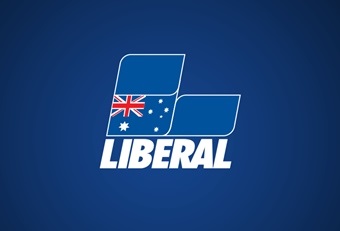
Labor’s Budget will cost you more
The test tonight for the federal budget was for the Government to build on the strong position it inherited from the Coalition to address the cost of living crisis bearing down on Australians.
Labor has failed this test.
Just before the election, the Prime Minister told Australians that they “will be better off under a Labor government.” In fact, by Christmas, the typical Australian family will be at least $2,000 worse off.
Tonight’s federal budget does nothing to assist your family budget.
There is no credible plan to deal with the source of inflation or to help families deal with immediate cost of living pressures.
Instead, there is an aspirational promise to build one million homes – starting in 2024.
This budget fails Australian families at a time when they really need a plan to address cost of living pressures.
This is a budget that’s heavy on partisan politics, but lacks an economic plan.
This budget confirms that:
- your cost of living is going up;
- your electricity and gas bills are going up;
- your tax payments are going up;
- government spending is going up;
- employment will go down; and
- real wages are forecast to go down.
We were told that this would be a ‘bread and butter’ Labor budget – and it hasn’t failed on that account. It’s a high-taxing and high-spending budget that does nothing to help you or your family get ahead.
As we emerged from the pandemic, the fundamentals of the Australian economy were strong – our jobs growth was better, and our debt was lower than any other advanced economy.
Every nation is facing challenges born from the pandemic and amplified by global economic headwinds. We approach these challenges in a stronger position than any other nation. Despite this advantage, Labor’s first budget fails to deliver for Australian families.
Electricity prices
The budget confirms that electricity and gas prices are expected to rise sharply over the next two years. Treasury has assumed retail electricity prices will increase by 50 per cent. Retail gas prices are up some 40 per cent in 2022 and 2023. Despite Labor’s pre-election promise to reduce your power prices by $275 a year, their own budget papers contradict this claim, and the Government has no plan to address rising prices.
Tax
Tonight, the Albanese Government has again failed to limit taxes imposed on Australians. Under Labor the tax paid by Australians will increase by $142 billion over the forward estimates. They have abandoned the 23.9 per cent of GDP tax cap. Families facing cost of living pressures should be able to keep more of what they earn. This budget delivers no certainty for the 10 million Australians on their legislated tax relief due in 2024.
Retiree Tax 2.0
The only new change to the tax system announced in this budget is a new tax on investments.
Labor’s sneaky new tax will slug people who invest their own savings and superannuation.
Despite ruling out these changes before the election, Labor will hit retirees and investors with a new $555 million tax – depriving investors of franking credits which they have previously relied on.
Labor’s billion-dollar black hole in multinational tax avoidance
At the election, Labor promised to crackdown on multinational tax avoidance to the tune of $1.9 billion over the next four years. The budget confirms this measure is now expected to only generate $950 million – resulting in a $1 billion black hole in Labor’s first budget.
The Albanese Government inherited an enviable set of economic circumstances from the former Coalition Government.
In just one year under the Coalition – between 2020-21 and 2021-22 – the budget position improved by over $100 billion, the largest budget turnaround since Federation.
The Coalition wants Australia to do well, but we are being hampered by a new government with no economic plan for the future.
Australians deserve better from a government that promised so much, but in its first economic test, has delivered very little.
The content above from the originating party/author(s) may be of a point-in-time nature and edited for style and length. The views and opinions expressed are those of the original author(s). View original.
AusPol.co Disclaimer


